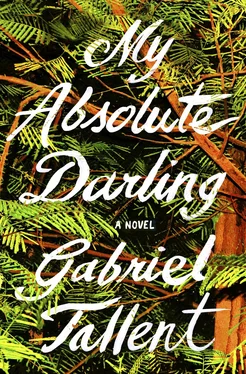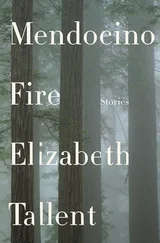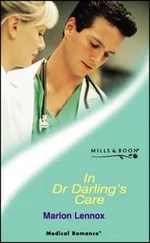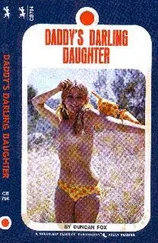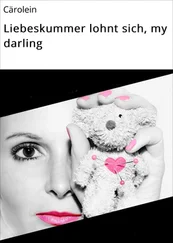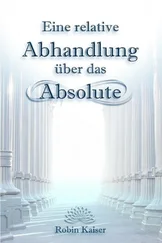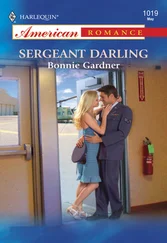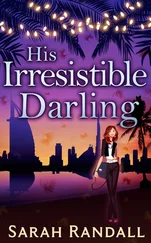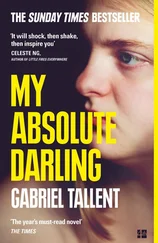She walks to the bathroom and Rosy comes in after her, hesitant, nails clicking on the floorboards, looking shyly around. Turtle turns on the shower and Rosy stands just outside the tub, and when she pulls the plastic wrap to encircle the tub, the dog whines. Turtle bows her head under the showerhead and listens to the water. She has the image of water trickling past her broken eardrum into the whorls of her inner ear. Rosy walks in a circle several times and then drops down onto the floor with her head on her forepaws and watches. Turtle thinks, did he really say all of those things? Or did I mishear him? She remembers him hunkering down over Grandpa, saying, tell me what you see . She thinks, did he really do that, did he say that or something like it? She can’t remember. She stands with her hands by her sides, the water running over her head and she thinks, I wish I could feel something. She is covered in fleabites.
When she comes out of the shower, Martin is on the phone. She follows his mouth, he is saying “—for your concern. She will not be coming in today. Yes. Yes—” Then he says something that she cannot put together. He must be talking to the school. They must have called to report her absence. She stands there and mouths as he is mouthing, to figure out what he is saying, and Martin notices, stands up away from the wall in curiosity, his brow wrinkled, and now he mouths to her, What the hell are you . . . ? and she turns and gathers Rosy in her arms and walks away up the stairs, the dog fidgeting and kicking, Turtle feeling cold all over.
She lights a candle. She closes her door. She grubs Rosy for fleas, feeding them into the pool of hot wax with her pinched fingers. The wax burns her fingertips and the fleas float, immured black points, Rosy yawning hugely, showing yellowed teeth. Turtle wakes sometime in the night with Rosy whining and scraping on the door. She takes the dog downstairs and out into the yard, but Rosy goes on, through the orchard, her tail fidgeting nervously, laboring through the grass on her short legs, panting, until she comes out into the clearing and stands there, yawning, looking at Turtle, and Turtle says, “Oh, Rosy, oh, you old dog.” She takes her in her arms and carries her back.
The next day, Rosy comes down the stairs with her and stands in the kitchen as Turtle takes eggs from the carton and tosses them back. Martin comes out of his room, buttoning his flannel. She tosses him a beer and he catches it, bangs it open on the countertop. They walk together in twin ruts, Rosy trailing behind, wagging her tail and whining, and they stand at the gravel pullout and watch the sea stacks and the horizon line. They say nothing. Finally, the exhausted gasping of the bus, the throwing open of the doors with the thwapping of rubber skirts, Martin saluting the bus driver, enormous in her coveralls and logger boots, Turtle sitting in class trying to listen and unable to listen but copying down everything that Anna writes on the board, every word, sitting at the edge of the field looking out at the trees, sounding herself for any feeling at all and finding none, and Turtle finally on the bus ride home, in the green vinyl pews, looking out at the ocean broken by kelp beds, the bulbs and fronds stirring the surface, wondering at its strangeness, which she sometimes loses track of because it is there, day in and day out, but Martin was right about this one thing, its strangeness. Turtle climbs the gravel drive at the end of the bus ride, and Rosy is not in the house and she walks through the grass and past the old claw-footed tub and through the orchard to the clearing beside the raspberries and there she finds Rosy lying in the grass, and she lifts the dog up and carries her back to the house. Turtle sits across from Martin with the scraping of plates and Rosy whining in the corner and Martin looking at the dog and Turtle saying, “I’ll pick up some dog food,” and Martin still looking at the dog and finally saying, “No, I’ll do it.”
Every day, Turtle walks across the field, through the orchard, to find Rosy waiting in the clearing, and every day carries Rosy back, and eventually Martin comes from Mendocino with a bag of kibble and they fill a bowl, and Rosy stands hanging her head over the bowl and returns to Turtle and looks up at her sorrowfully, and walks back to the bowl and hangs her head over it sadly, and back to Turtle again, skulking, head low, peering up with the whites of her eyes showing, and Turtle saying, “What are we going to do with you, Rosy? What are we going to do with you?”
He brings home paperwork that absorbs his attention for the rest of dinner, touching one eyebrow with his thumb but not complaining, filling it out one line at a time, across the table from her in their firelit living room, a bleeding steak on a blue Bauer plate pushed out of reach, and one such night, Turtle asks, “Will he be buried, or cremated?” and he looks up from his paperwork, hands braced on the table, the span of his shoulders enormous, and he says, “All your grandpa wanted was to be dropped into a pit and then to rot there. So.”
In the early morning, Turtle, roused by Rosy’s scratching, stands on the porch with the spotlights on, shooting skeet by the halogen glare, yarding ferociously on the pull cord for the skeet thrower and then raising the over-under skeet gun into the cup of her shoulder, the satisfying report of the gun and the skeet just gone to sparking orange dust in the halogen glare, turning around to see Martin leaning there in the doorway, his face unreadable, and realizing then and not sure how long it has been true, but the ringing in her left ear is gone. When Martin turns away and walks back to his bedroom, Turtle trudges through the cold high grass wet with dew and finds Rosy in the clearing by the burned hulk of the trailer and picks up the dog and carries her back to her room, and wakes again that night with Rosy scratching at the door, and Turtle will not take her down, and Rosy will not quit scratching and whining.
Then one day Martin picks Turtle up after school and drives her to the Little River graveyard. They park on the side of the road and walk in through the rusted gates and they watch as the casket is lowered into the ground. The sides are sandy coastal earth, rough as a shorn-open biscuit. The casket is simple. The crowns of her teeth ache with cold.
Martin says, “What I really wanted was a cardboard box.”
The man, stooped, operating the winch that lowers the casket, looks up fractionally. Martin says, “The law says you have to choose a casket and they are none of them cheap.” The casket is deeply varnished and Turtle is impressed with its somberness, but it looks nothing like Grandpa’s coffin should look and she cannot and will not believe that Grandpa is in the coffin and she stands and watches the coffin go down into the grim black earth.
“They do not allow me,” he says, “to make a coffin for my father. There is a process of accreditation to make a legal coffin, but how I wish I could have made one. They no longer bury people here. There is no more room, but your grandfather has had this plot for a long time. And that—” He nods to the black headstone beside it, and Turtle kneels and reads, VIRGINIA ALVESTON, and Martin says, “Kibble, meet your grandmother.” The plot is covered in dandelions. The grass is scoured by the coastal wind and has the weedy look of all coastal grass, and Turtle waits by the headstone and can make no sense of it, and she looks up at Martin. He says, “Don’t worry. You’re nothing like her, and wouldn’t’ve liked her if you’d’ve known her. She had a cast-iron heart, that woman. You’re your mother, up and down, and if you have anything of Virginia in you, it’s that streak of puritanism you have sometimes. She saved everything and would throw nothing away. She used to wash the floorboards by throwing a bucket of water across them. It rotted the legs of the tables out. She would’ve been proud of you, I guess, if she’d’ve known you ever.”
Читать дальше
Конец ознакомительного отрывка
Купить книгу
